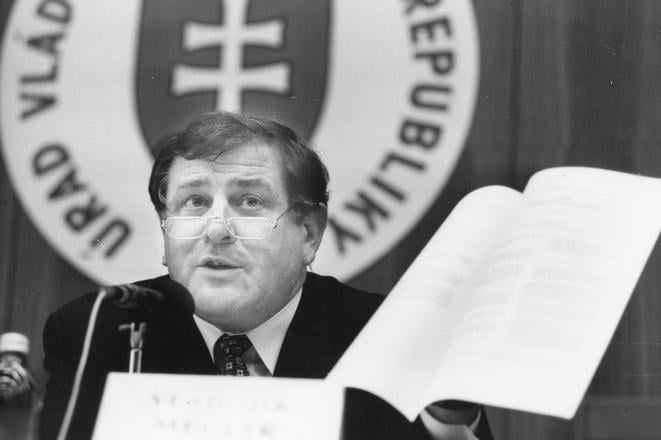During a recent weekend I spent in a south-central Slovak town, I asked people for words and phrases they believed had come into the Slovak language since 1993 independence. It's a good conversation gambit, appealing to Slovaks' pride in their language, as well as giving them a vent for their feelings about a decade of change.
Balík ekonomických opatrení (package of economic measures) was the choice of one man who in the last four years has seen announced two larger balíky and several partial ones.
"What the hell does that mean?" he asked. "Why don't they just admit they're raising prices and cutting benefits?"
"It's hmla [fog]," said his companion, arguing that the language had been hijacked by people whose goal was to obfuscate rather than elucidate. "We've got sociálny balík [social package], reformné opatrenia [reform steps], and my favourite, zefektívnenie štátnej správy [improving the efficiency of the state administration]."
Unenlightening and mendacious, these phrases rile many Slovaks because they go against the national character, which favours direct, bald speech.
The language of independence, for example, celebrates the massive theft of public property that occurred over the decade following communism with new words like tunelovanie (tunnelling, i.e. asset stripping), rodinkárstvo (nepotism), klientelizmus (clientelism, cronyism) and korupcia (corruption). While the words themselves may not be new, their presence in everyday speech certainly is.


